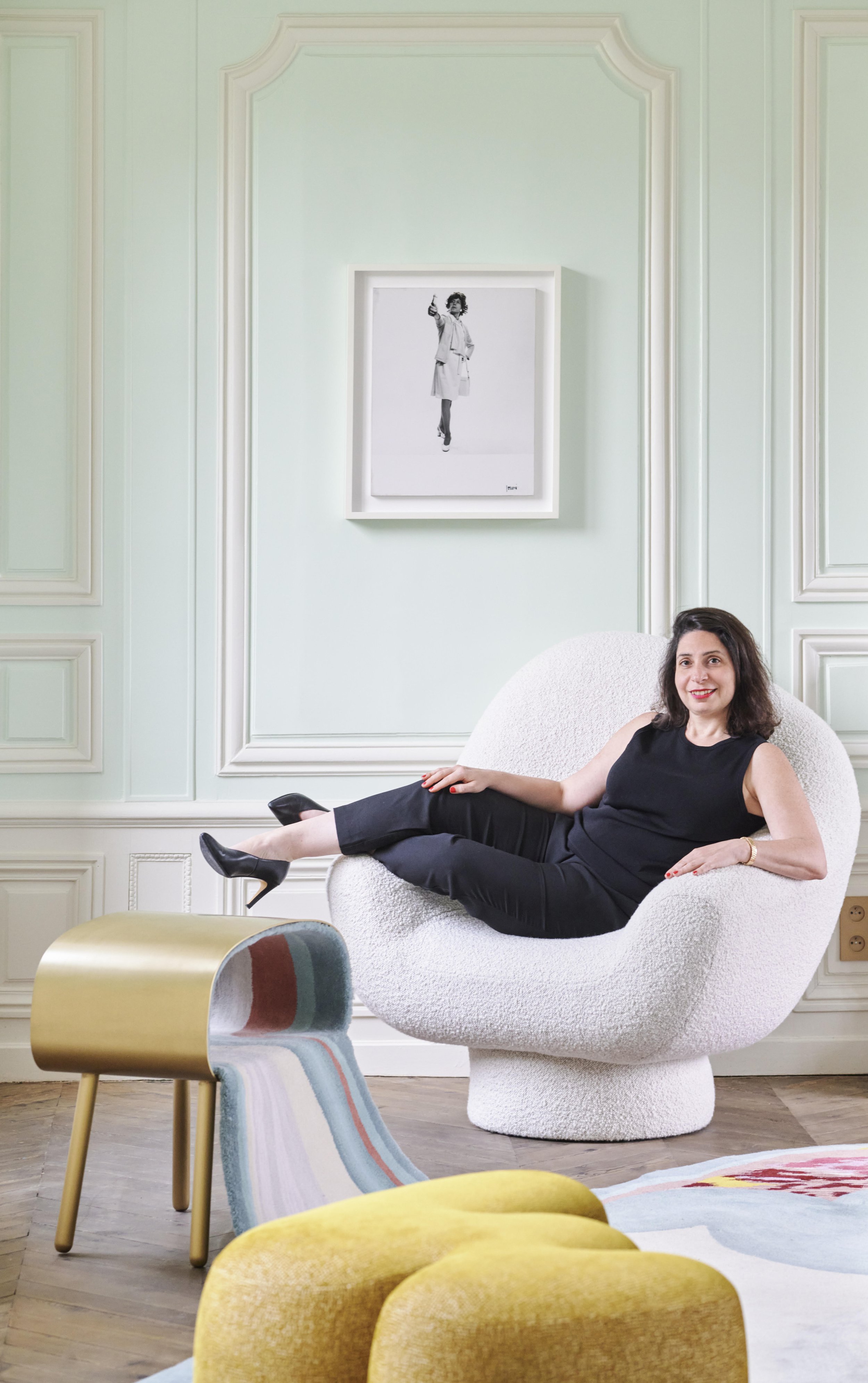Artistry in Engineering
Parisian designers and artisans Franck Genser and Bina Baitel employ a transdisciplinary approach to bring elegant and exciting interiors to life.
Written by Elliott Greene
In September, the eyes of the interior design world collectively cast its discerning gaze on Paris for the Maison&Objet show and Paris Design Week. With Vivant, Vivants, which translates to 'alive, living' as the theme of the fourth edition of Paris Design Week and "quest of pleasures," the stated mission of Maison&Ojet's fall edition, we're singling out a pair of designers who embody these concepts by marrying an adherence to time-honored techniques with forward-looking idealism.
Franco-Swedish and a École Nationale Supérieure d'Architecture de Paris-La Villette graduate, Bina Baitel is both an architect and a designer. Baitel's youth in the Middle East imbues her work with multiple influences, enabling her to explore the question of cultural interpenetration on formal, functional, and symbolic levels.
Artist and designer Bina Baitel / Photo by Didier Delmas.
After founding her design and architecture studio in Paris in 2006, Baitel's creations have made their way into museums and international fairs (Milan, Dubai, Paris, New York, Venice, Basel) and have been snatched up for public and private permanent collections. At Paris Design Week, she will unveil the Bina Baitel Collection, showcasing 30 pieces characterized by an invitation to contemplative and interactive experiences.
Furnishings from Bina Baitel’s new 30-piece collection. / Photo by Didier Delmas
Baitel says that each piece, developed through proprietary manufacturing processes and technologies in collaboration with the finest artisans in Europe, “tells a story materialized through a dedicated plastic expression, generating new typologies of objects.” The designer prompts us to question our relationships and interactions with the things surrounding us while she explores their common codes to propose concepts with strong inspirations. Her innovations include a lamp made entirely of flesh-colored leather, an interactive circular wall light ringed with fur, a stool inspired by the world of haute joailleri, and a sofa inspired by the fluidity of maritime landscapes. These high-quality creations express the artist's embrace of a constant dialogue between traditional craftsmanship and innovative experimentation.
The PAD Lamp from Bina Baitel is made entirely of flesh-colored leather. / Photo by Florian Klein.
Fur-Light, by Bina Baitel is an interactive luminaire. Its sensitive fur, embedded with invisible sensors, reacts to the user’s caresses to turn on and adjust the light as desired.
Since 2015, Franck Genser, an engineer-turned-entrepreneur, has turned out extraordinary pieces from his Paris atelier. Cabinetmaking, tapestry, art foundry, and alabaster work are among the skillsets he calls upon to breathe life into his sculptural pieces, combining exceptional craftsmanship with timeless elegance. As a Gestalt therapist (a form of psychotherapy that emphasizes personal responsibility and focuses on the individual's experience in the present moment), Genser says he remains fascinated by the essence of objects, their impact on individuals, and the constant interaction between humans and their environment.
Photos of Franck Genser by Vincent Leroux.
At the heart of the Franck Genser workshop, the art of lacquer takes center stage, inspired by his extensive journeys and encounters with gifted artists. Among them, the revered lacquer master Nagatoshi Onishi profoundly impacted Franck Genser's work. Fueled by infinite patience and an unwavering quest for perfection, Onishi's influence is unmistakably evident in Genser's exquisite creations.Among these exceptional works, the Onishi coffee table is a testament to the rich legacy of Japanese vegetable lacquer. Painstakingly crafted using the Urusgi technique, the table undergoes more than 24 meticulous lacquering stages, each separated by precise sanding to achieve an impeccable finish. The result is a masterpiece that boasts sleek lines, sophistication, and a profound tribute to the art of Japanese lacquerwork.
Omniski coffee table by Franck Ginser.
Woodworking is another of Gesner's cherished traditions, bringing forth remarkable pieces that embody the essence of exceptional furniture. Under the skilled hands of master craftsmen, rough wood transforms into exquisitely curved forms, reflecting the designer's vision. Merging the best of modernity and tradition, the iconic Décision chair, inspired by Émile-Jacques Ruhlmann, a French furniture designer and interior decorator who was one of the most influential figures in the Art Deco movement, balances two finely sculpted solid American walnut volumes with four elegantly designed legs.
An ongoing affinity for the delicate art of alabaster and Ruhlmann's legacy prompts Genser's team to hand-select some of these precious stones from the same deposit once mined by Ruhlmann in the 1920s. The workshop's Toutaime lamp enhances alabaster's natural transparency and facets while bathing interiors in a soft, diffused light.
The Piscine coffee table is a key piece in the atelier's table collection that demonstrates the workshop's skill in bronze with a whimsical touch. The table's ladder-like base is waxed brass, while the deep blue bronze tabletop is achieved through the hot patina technique.
Piscine coffee table by Franck Genser
Looking to the future by taking innovation to new heights, Gesner's studio is a pioneer in fusing traditional craftsmanship with cutting-edge technology. Engineers within the workshop focus on robotics projects, giving rise to imaginative creations, from touch-activated lamps to dome-shaped wall screens and even a serving droid for champagne glasses and bottles. Gesner says that these technical innovations, combined with human artistry and inspiration from his imagination, will continue to result in functional, artistic, and emotional furniture pieces.







